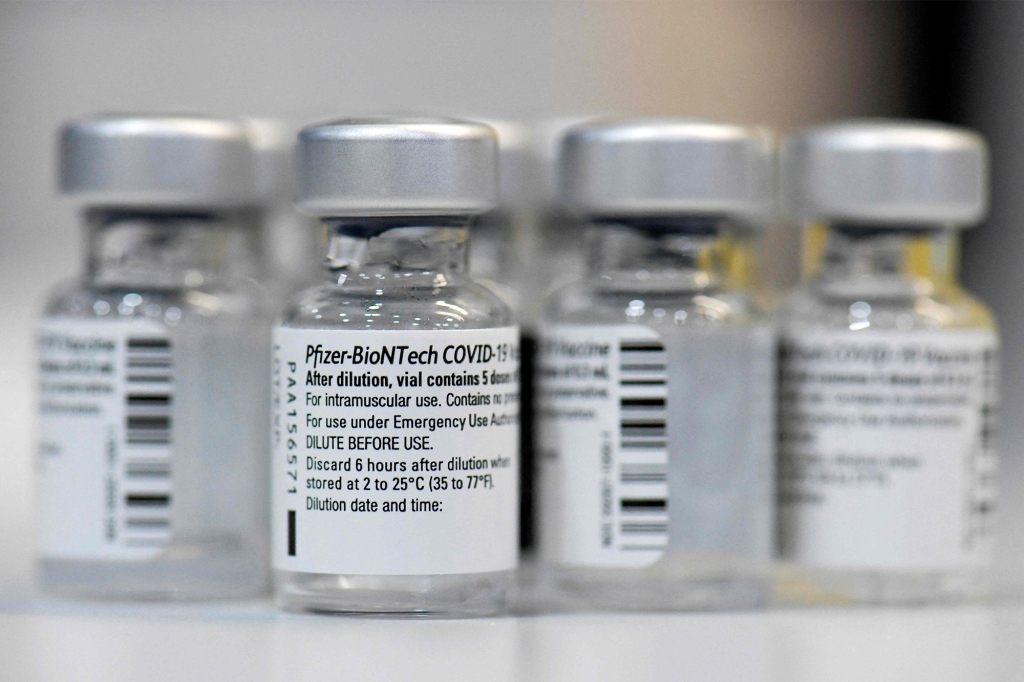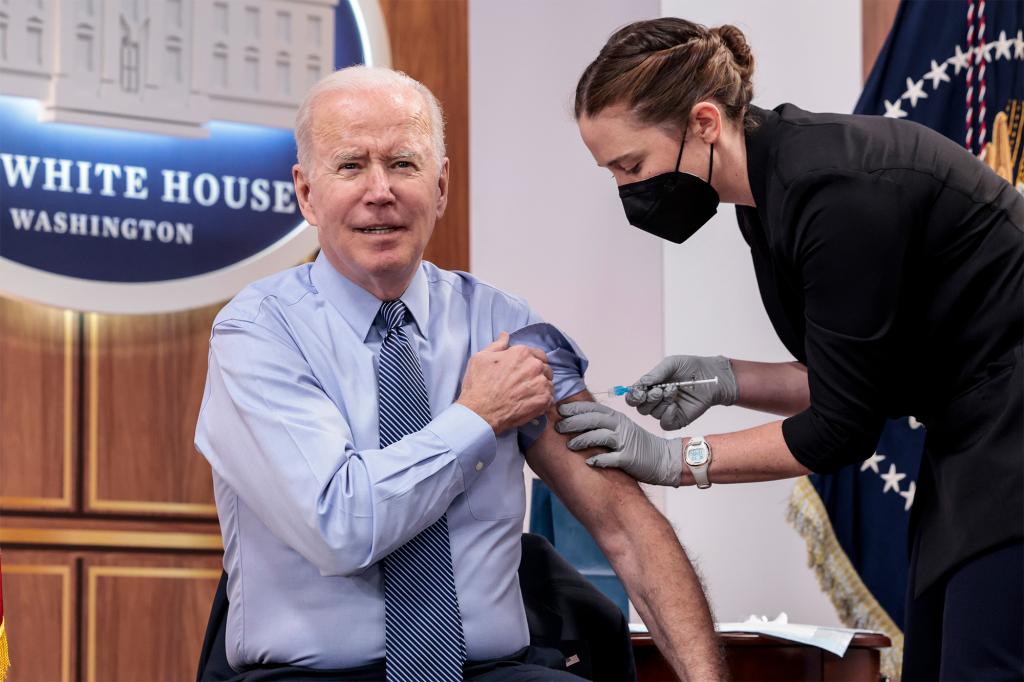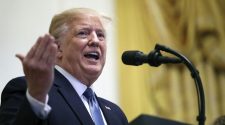The Biden administration is about to give one of the biggest US technological breakthroughs of the 21st century to Russia and China — free of charge.
That’s not the administration’s goal, of course. But it’s the inevitable result of a proposed deal that US negotiators recently struck in Geneva, Switzerland, at the World Trade Organization.
The pact would effectively nullify intellectual-property protections on COVID-19 vaccines, including the next-generation mRNA shots from US companies Moderna and Pfizer. These mRNA platforms represent decades of research backed by billions of dollars in public and private investment. But if the WTO votes in favor at its summit starting June 12, our strategic and economic competitors — who contributed nothing to the effort — will enjoy the greatest free ride of all time.
It’s galling that the administration would cede the incalculable economic and diplomatic benefits from these platforms. And it’s particularly insulting that negotiators are telling their constituents the move is necessary to increase the supply of vaccines to the developing world. This is demonstrably false.
In fact, there’s a global glut of vaccines — and that’s been the case for months. Late last year, five African nations — Malawi, Mozambique, Namibia, South Africa and Zimbabwe — asked Pfizer to halt vaccine shipments because they have more than they can process. Adar Poonawalla, CEO of India’s Serum Institute, says his company has 200 million doses sitting in storage due to a lack of demand. The Africa Centres for Disease Control and Prevention has requested a pause in vaccine donations.
Drug companies have the capacity to produce 20 billion COVID shots this year. That’s more than enough to serve a global population of about 8 billion people, many of whom have already been vaccinated. Supply is clearly not a problem.
So what is? Africa CDC head John Nkengasong says it’s partly a matter of logistics — having the staff and equipment necessary to get shots into arms — and partly vaccine hesitancy. Just as in wealthy parts of the world, many people in poor countries are skeptical about vaccines.
Suspending intellectual-property protections would do nothing to solve either of these on-the-ground barriers. It would, however, jeopardize the system that made COVID vaccines possible, along with countless other lifesaving medicines.
Drug manufacturers must invest billions of dollars to bring new medicines to market. The failure rate is high: Only 12% of experimental medicines that enter clinical trials are ultimately approved for patients.
If innovators didn’t have a period of exclusivity over their drug designs, any rival could simply steal their work. No firm would be able to recoup its upfront investments into research — and funding for cutting-edge medications would plummet.
Proponents of the proposed deal dismiss these concerns, pointing out that it applies only to COVID vaccines, which of course already exist.
But that’s misleading. The language of the waiver is slippery. It states, “No later than six months from the date of this decision, [WTO] members will decide on its extension to cover the production and distribution of COVID-19 diagnostics and therapeutics.”
Note: “will decide,” not “may decide.” And waiver proponents are already pushing for this extension. “Vaccines are not the only tool in the fight against COVID-19,” says Initiative for Medicines, Access, and Knowledge co-founder Priti Krishtel. “To save as many lives as possible, an IP waiver would include tests and treatments.”

The waiver would set a disastrous precedent that activists and certain WTO members would surely try to expand to other areas of medicine. Why not waive patent protections on drugs that treat cancer and heart disease — two ailments that claim many more lives than COVID-19?
The waiver also poses a national-security risk. Russia would directly qualify for access to the mRNA technology. And China has pushed back against a footnote in the agreement designed to block the Communist nation’s access. Even if that footnote is ultimately approved, and China is technically barred from pilfering our technology, it could easily gain access indirectly with the help of its allies. In effect, the United States will unilaterally forfeit one of our few remaining economic advantages. American innovation will go to our biggest overseas competitor nations with zero compensation.
Violating the intellectual-property rights of US companies — and offering the fruits of their labor to our adversaries — is a spectacularly bad idea. That we’re poised to do so in the name of solving a vaccine shortage that doesn’t exist is mind-boggling.
Andrei Iancu served as the under secretary of commerce for intellectual property and US Patent and Trademark Office director from 2018 to 2021. David J. Kappos served in the same positions from 2009 to 2013.
















